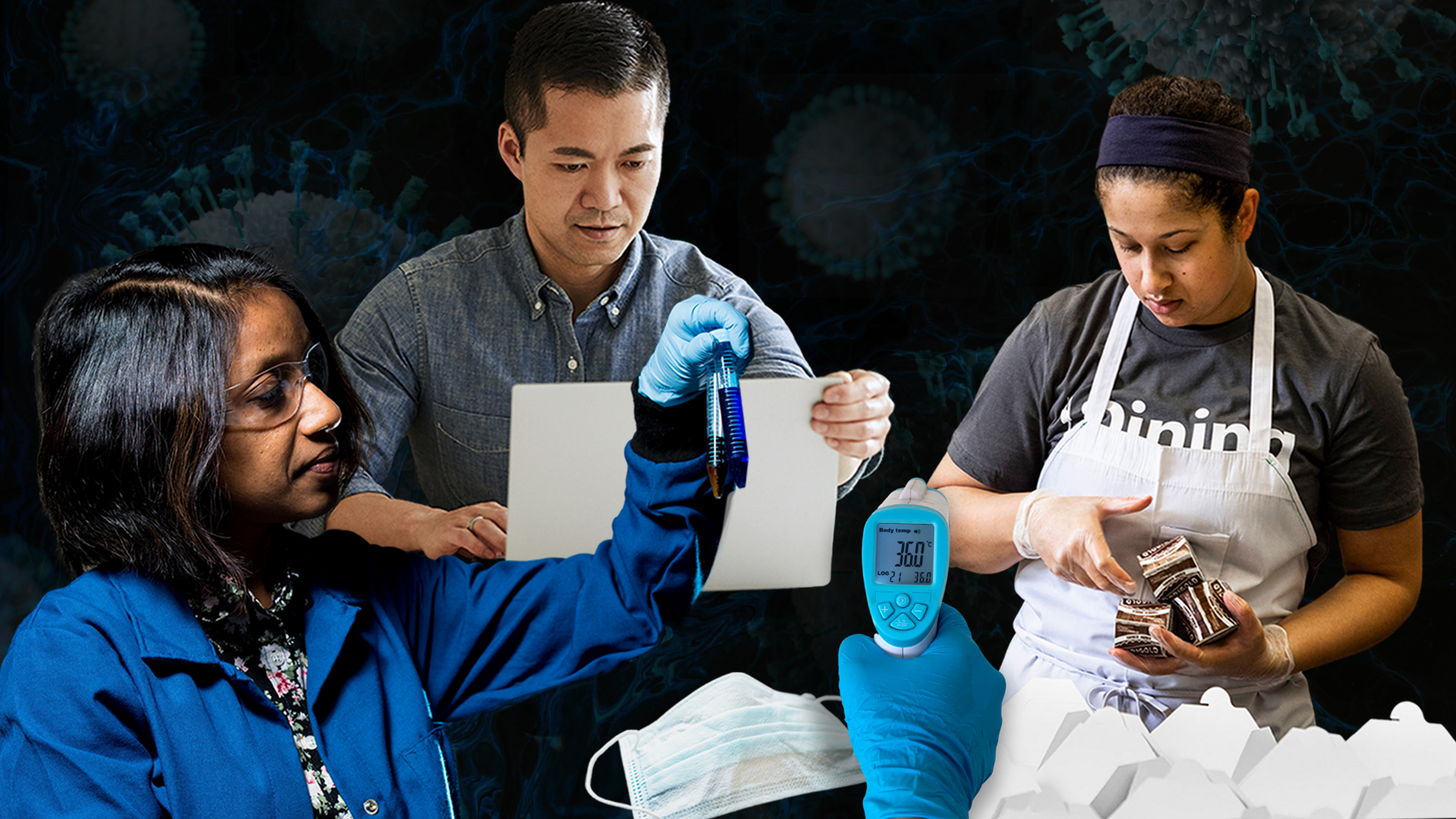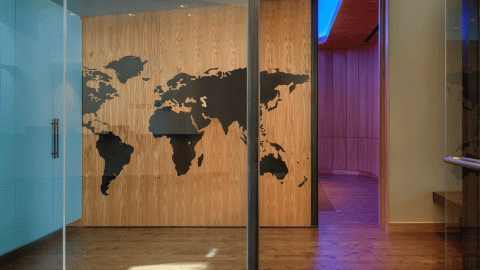Data, supplies, community: how Microsoft is supporting efforts to combat COVID-19
Family, friends and co-workers around the world are facing the effects of the COVID-19 pandemic. Managing response efforts requires the cooperation of every sector of society – governments, businesses, non-profit organizations and individuals.
As COVID-19 continues to disrupt life, we offer this resource to communities, non-profits and government officials to understand some of the ways Microsoft is aiding efforts around the globe.
Last updated: April 13, 2020 1 P.M. PST.
Supporting community-based organizations
Microsoft is working with local groups in the areas most affected by the coronavirus.
In Italy, where the country is battling one of the world’s largest outbreaks, Microsoft has contributed to the purchase and timely delivery of medical equipment in Milan, which has been hit hard by the pandemic. Microsoft is also part of a larger effort across the country to help continue business and educational operations for companies and students.
The Puget Sound region in Washington state was one of the first areas in the United States to experience a major outbreak of COVID-19. Seattle Foundation’s COVID-19 Response Fund is rapidly deploying resources to community-based organizations that are helping local workers and families most affected by the coronavirus.
The company also rolled out a new Give With Bing option for people to give back to local groups by switching on Give Mode and choosing an institution near you.
Microsoft delivered 3,000 repurposed personal-sized hand sanitizers to Plymouth Housing in Seattle.
In China, Microsoft has offered monetary and product assistance from the start of the outbreak. Support has included communications and data help for hospitals and assistance for all customers through the provision of free services.
Helping people

The economic impact of the pandemic has hit the most vulnerable families hard. Microsoft has been working to ensure food reaches those children in most need, supplying more than 120,000 lunches and counting.
Microsoft Store employees are helping people in new ways despite closed doors, including virtually training more than 65,000 people in government, health care, education and finance on using Microsoft Teams.
Recognizing the hardship that reduced working hours mean for hourly employees, Microsoft has committed to paying all vendor hourly service providers their regular wage during this period of reduced service needs.
Harnessing Data

Microsoft’s AI for Health program is helping to provide medical researchers with the computing power they need.
The company is also mobilizing its AI for Health initiative to focus on helping those on the front lines of research of COVID-19, immediately dedicating $20 million to this effort.
And the Microsoft AI for Health team is working with the Institute for Health Metrics and Evaluation at the University of Washington to create data visualizations that help researchers better understand and respond to COVID-19.
Microsoft has also expanded its existing partnership with Adaptive Biotechnologies Corporation, which maps population-wide adaptive immune responses to diseases at scale, in order to study COVID-19. The data collected and analyzed will be made freely available to any researcher, public health official or organization around the world via an open data access portal.
Microsoft has also partnered with the CDC on an automated system that allows people to check their symptoms without overwhelming health services.
Microsoft is part of an AI consortium led by the C3.ai Institute that is calling for research proposals using AI techniques to mitigate pandemics.
Microsoft is working with the Institute for Health Metrics and Evaluation at the University of Washington to support their data visualizations to help the public and policymakers better understand the COVID-19 crisis and response.
Microsoft’s AI for Health program has also collaborated with the Washington State Department of Health to help paint a clear picture of the viruses affect in the region.
Aiding the frontlines

Microsoft’s Tech for Social Impact team is working with non-profits and international organizations such as the United Nations to facilitate remote work and assist in their crisis response efforts. Earlier this month, the company released additional solutions for nonprofits and international organizations, which will be free for six months.
On April 2nd, the company also put out a resource guide for non-profits and is continuing to work on ways to help non-profits through this time.
The company announced an additional commitment of tech and cloud support through their Tech for Social Impact initiative that prioritizes critical care and first response nonprofits.
Microsoft also announced that its Philanthropies efforts would suspend grant outcome metrics through fiscal year 2020. With this change, the grantees have the flexibility to use the resources in a manner best suited for dealing with the crisis.
Microsoft is part of a technology SWAT team initiative by New York State to accelerate the technical response to the pandemic.
Microsoft and Swedish Health Services joined forces to build out an app that aids hospital staff monitor resources for COVID-19 related care.
Providing medical supplies and resources

Microsoft has been using its supply chain to help deliver vital medical supplies and equipment to the frontline health workers.
The VentilatorChallengeUK consortium in the U.K. is being supported by Microsoft along with several other companies. The consortium has free access to Teams; the supply chain of the ventilators is being supported by Dynamics 365 Supply Chain Management; and Microsoft HoloLens and mobile devices will create and share training content.
The Microsoft Healthcare Bot service has connected with more than 18,000,000 individual users across the globe, helping supply up-to-date, accurate information and screening people for potential coronavirus infection and treatment.

Microsoft Teams is expanding to help businesses operate while their workers remain at home.
Microsoft joined the global COVID-19 Education Coalition from UNESCO to offer access to tools that help students and teachers continue their learning and teaching through the pandemic.
School shutdowns have affected millions of children around the world. Minecraft is providing free educational content to help keep them learning at home.
While you are at home, Microsoft is providing trainings and support for Office 365 to support remote learning.

In Europe, Microsoft has partnered with the European Cybersecurity Forum to help researchers find solutions to COVID-19 by making sure they have access to online tools and resources.
As well addressing alternative ways of achieving modern security controls and offering targeted COVID-19 news summaries through Bing, Microsoft is working together with Facebook, Google, Twitter and others to elevate authoritative content across all platforms and jointly combat fraud and misinformation about the virus
For additional resources, visit https://news.microsoft.com/covid-19-response/ and follow @MSFTIssues on Twitter.








